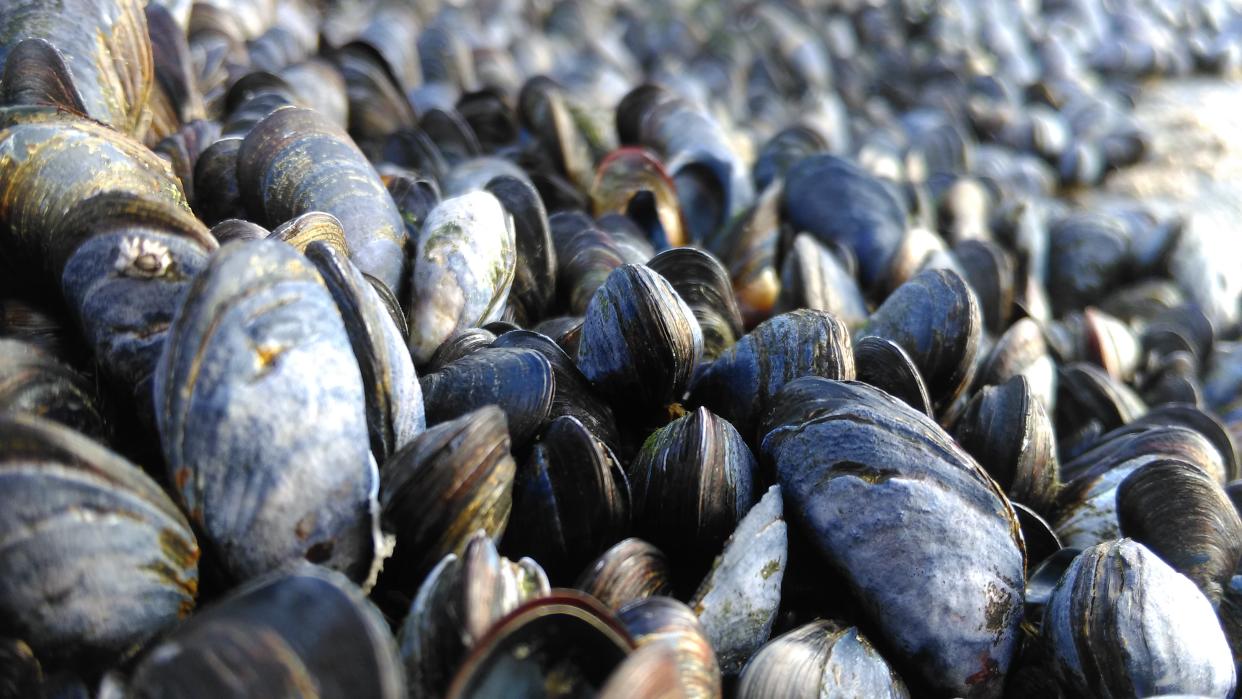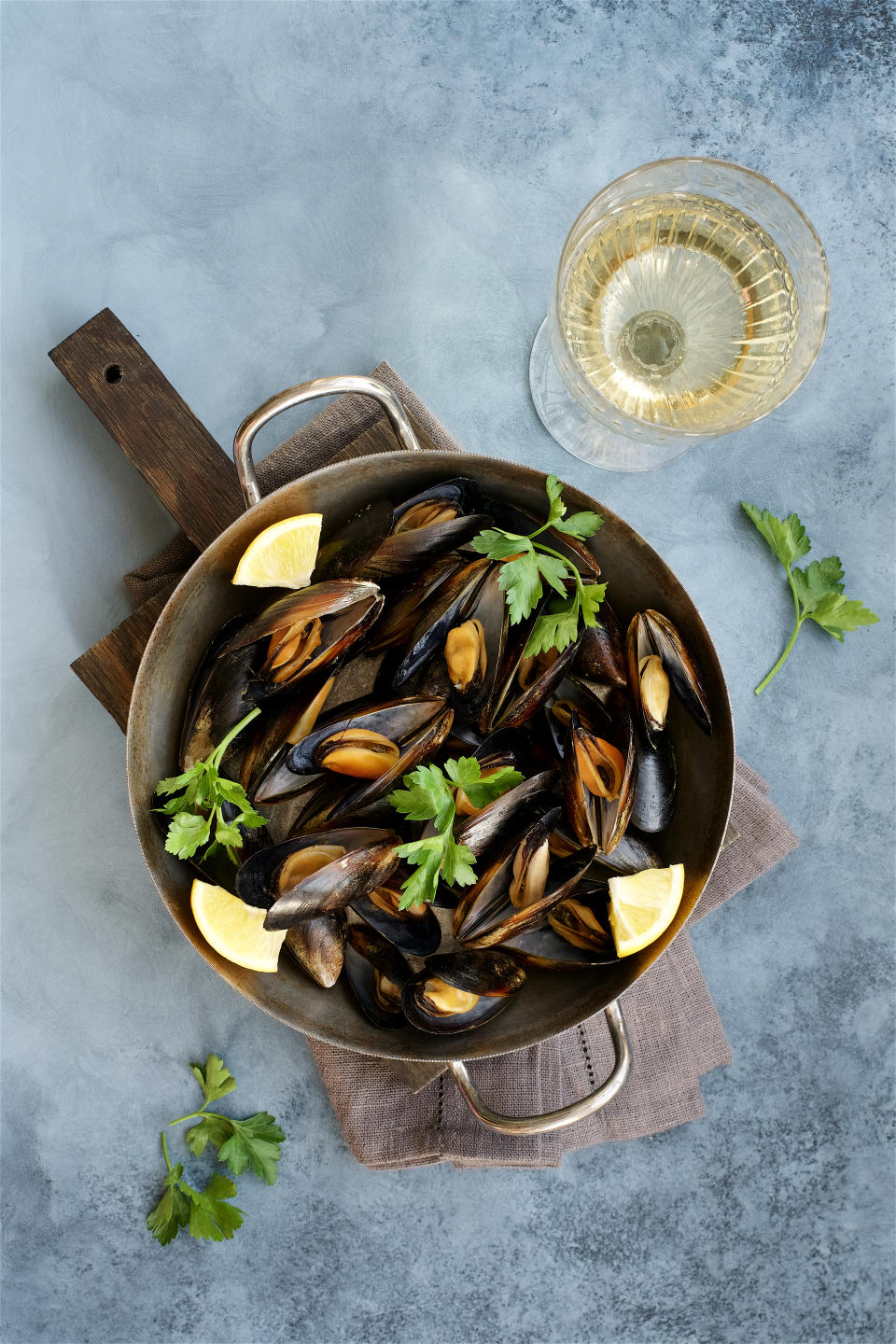Microplastics in the oceans are causing mussels to lose their grip

Microplastics flushed into the oceans are causing mussels to lose their grip, a new study warned.
The tiny particles of plastic are affecting the ability of mussels to attach themselves to their surroundings and triggering an immune response in the molluscs.
The findings suggest a threat to the survival of the molluscs which are an important part of the ecosystem and a billion pound industry.
Blue mussels were exposed to samples of non-biodegradable microplastics measuring less than five millimeters over 52 days.

They produced significantly fewer byssal threads, which are thin fibres that help mussels attach themselves to rocks and ropes.
As well as enabling mussels to cling on when battered by waves and strong tides, byssal threads also enable them to form mussel beds which form important habitats for other species.
The research was carried out at the Portaferry Marine Laboratory in Northern Ireland
It also found the overall tenacity or attachment strength of the mussels, calculated by measuring the maximal vertical force required for the mussel to become dislodged from its position, fell by 50% in the sample exposed to plastics.
Researchers also measured the proteins within the mussel’s circulatory fluid or haemolymph, which performs a similar function to blood, to see what effect the microplastics had on the health of the mussels.

Worringly they found microplastics induced a strong immune response and also affected the mussels’ metabolism.
Dr Dannielle Green, a senior lecturer in Biology at Anglia Ruskin University, in Cambridge, said: “Our study showed that the presence of non-biodegradable microplastics reduced the number of byssal threads produced by the mussels, which likely accounts for the 50% reduction in their attachment strength.
“A reduction in these byssal threads in the wild could lead to cascading impacts on biodiversity as well as reducing yields from aquaculture, as mussels are more likely to be washed away by waves or strong tides.
“Both biodegradable and non-biodegradable plastic are used in making single-use packaging, which if it becomes litter can break down into microplastics.
“Better recycling and an overall reduction of these materials can play an important role in helping to safeguard our marine environment.”
The research was published in the journal Environmental Pollution.


